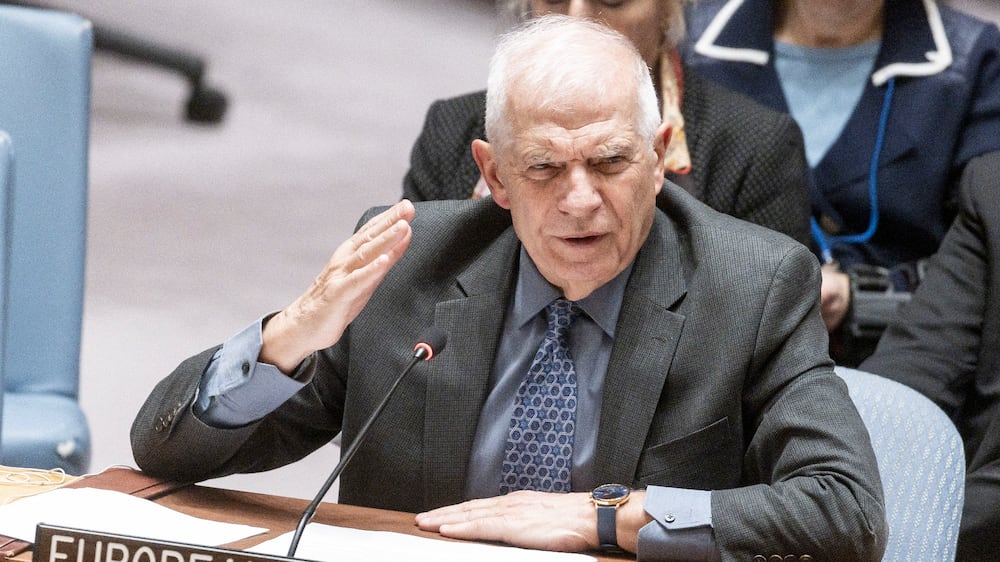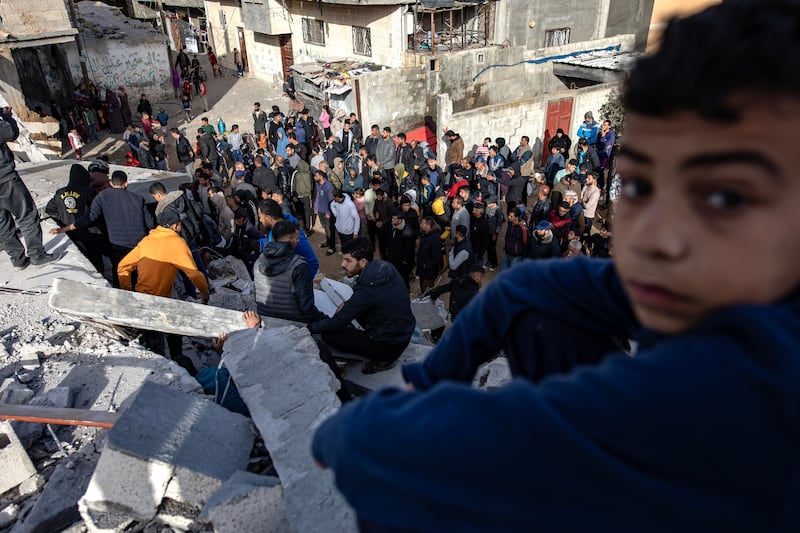Live updates: Follow the latest news on Israel-Gaza
Israel's reported plan to involve local tribes in the administration of Gaza would promote chaos in the war-torn Palestinian enclave, experts and residents have said.
Gaza's tribes have rejected the plan, which was reportedly drawn up by Israel's Shin Bet internal security service and the military. The plan not been officially announced yet. Israeli public broadcaster Kan reported in early January that it was to be submitted to the government for approval.
Israel is seeking ways to administer the Palestinian territory after its war to eliminate Hamas, the group that has ruled Gaza since 2007. Israeli Prime Minister Benjamin Netanyahu opposes handing over control of Gaza to the internationally recognised Palestinian Authority (PA) government based in the occupied West Bank.
A group representing Gaza's tribes and clans on Sunday said that they "are not an alternative to any Palestinian political system".
The tribes, clans and families are a part of "the Palestinian national components, and a part supportive of the resistance, safeguarding and protecting the internal front, and supporting our people against the Zionist occupation", according to a statement from the National Assembly of Palestinian Tribes, Clans and Families in the Gaza Strip.
Gaza's tribal system is a crucial part of the enclave's social fabric and provided Gazans with an alternative to Israeli courts, police and other authorities during Israel's occupation of the territory from 1987 to 1993.
However, it also has negative aspects such as the blood feuds, summary justice and competition for power. Some of the more prominent tribes have been accused of spreading disorder to promote their own interests, but their influence was limited after Hamas seized control of Gaza from the PA.
Israel's war in Gaza, launched after Hamas killed about 1,200 people in southern Israel on October 7 and took about 240 others as hostages, has devastated the small coastal enclave of about 2.3 million people. More than 31,200 people have been killed in Israel's continuing bombardment and ground offensive, which has displaced most of the population and created a humanitarian crisis with widespread hunger due to strict controls on aid entering the territory.
The reports of Israel's plan to involve the tribes in administering Gaza emerged amid international debate over the territory's post-war governance and reconstruction. According to Kan, it involves dividing Gaza into regions and sub-regions, with the local clan in each area entrusted with civil administration and the distribution of humanitarian aid.
Salah Abed Al Atti, chairman of the International Commission to Support Palestinian Rights, a civil society and anti-corruption organisation that is the Palestine chapter of Transparency International, said introducing a system of partial governance based on regional affiliations was a typical Israeli policy.
“The occupation aims to create divisions and spread chaos within Gaza, exacerbating its crises through the use of hunger as a weapon, collective punishments, imposing genocide, targeting all Palestinian families,” Mr Abed Al Atti told The National.
“It is currently trying to exploit their suffering and enforce the occupation agenda, deepening and pushing matters toward chaos, insecurity, and internal strife.”
Rabhi Sayyam, a legal researcher at a private law practice in Gaza, agreed that the Israel plan would only further promote disorder.
EU foreign policy chief says starvation in Gaza is being used as a war arm

“The occupation's ideas regarding the rule of tribes in the Gaza Strip cannot be realistic and are bound to fail because the tribal system in Gaza is inherently weak, and our societal system is based on law and courts as a primary authority,” Mr Sayyam said.
“The tribal role was limited to facilitating some aspects of life and complementing the law, with clan elders following instructions from the police and the judicial system," he added.
“The power of families, no matter how strong, would not be able to maintain security, order, or oversee the administration of the lives of hundreds of thousands of people."
Mr Sayyam said tribal rule would only result in "conflict and competition among clans, potentially resulting in violent internal strife".
"The clans are aware of this, which is why it is difficult for them to accept ideas of this nature,” he said.
The idea is also a cause for concern for people unaffiliated to major tribes or clans such as Saber Morjan, a resident of Jabalia refugee camp in northern Gaza.
“I come from a small and non-extended family, which means that under tribal rule, individuals like me would be caught between conflicts and have their rights disregarded,” Mr Morjan told The National.
“There is also the risk of persecution and violence from some members of ruling tribes. In previous years, tribes had greater influence than they do now in Gaza, and we have all witnessed how there were gangs and crimes.”
Mohammed Al Masri, a member of the prominent Al Masri family based in the Beit Hanoun area, said the Israeli proposals could never be implemented in any case.
“All these ideas are not applicable and it is impossible for the Palestinian people to accept them,” Mr Al Masri told The National.
“It is also difficult to find Palestinian families willing to work with it. Public betrayal would be the first thing, because these ideas contradict our principles and values as Palestinians and Muslims,” he said.
Any Gazan who co-operated with the Israeli plan would be viewed as a traitor, Mr Al Masri said.
“I don't expect anyone to put themselves in such a situation.”







